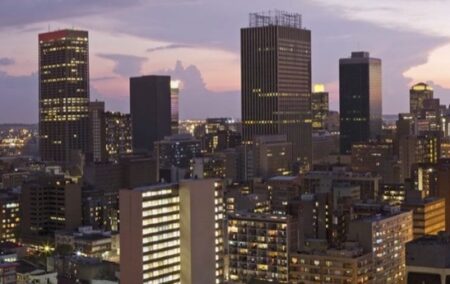Continuing migration to the cities is set to have profound effects on South Africa’s future – not least in election outcomes.
The world is urbanising and South Africa is no exception. From having only about half of its population living in urban centres 20 years ago, nearly two-thirds of South Africans live in cities today. This will have profound effects on the country – socially, politically, developmentally, and demographically.
Cities are important – people living in them generally have higher standards of living, higher rates of employment, and lower rates of poverty. In addition, cities act as hubs of innovation, with new ideas spreading quickly. Renowned urban economist Dr Ed Glaeser of Harvard University did not say cities are humanity’s greatest invention for nothing.
Cities are also harbingers of what is to come. Major cities around the world are often trendsetters for their respective countries. And this is also the case in South Africa. What happens in Johannesburg, Cape Town, or eThekwini (Durban) often sets the tone for what we can expect in the future in South Africa.
Using that as our starting point, what do the 8 May election results from our cities tell us about our politics?
The overall result gave the African National Congress (ANC) 57% of the vote, followed by the Democratic Alliance (DA) with 20.8%, and the Economic Freedom Fighters (EFF) with just over ten percent. The Freedom Front Plus (FF+) managed just over two percent of the vote.
But were these results mirrored in our cities? If we look only at election results from our eight metropolitan municipalities – Cape Town, Johannesburg, Tshwane (Pretoria), Ekurhuleni (East Rand), eThekwini, Mangaung (Bloemfontein), Nelson Mandela Bay (Port Elizabeth), and Buffalo City (East London), we see that the ANC could be very close to losing its national majority.
If results from our eight major cities alone decided our election outcome, then the ANC would have missed out on securing a majority by a whisker, with 49.6% of the vote. The DA’s proportion would have been ten percentage points higher than their national election result, at 30.1%, while the EFF would have also had a slightly higher proportion, at 11%. The FF+’s result would have been slightly better than their national result, at 2.5%.
And comparing the metro election results to what happened in 2014 confirms that the ANC is on the decline. But before the DA starts crowing, they also suffered something of a setback, when comparing the 2019 metro results to 2014.
In 2014, the ANC secured just under 53% of the metro vote, while the DA managed just over one-third of metro votes cast. The EFF won seven percent of the vote, while the FF+ won just under a percent of the vote. The ANC and DA both lost about the same proportion of the vote – between three and four percentage points.
But what should keep DA strategists up at night is that the party lost more total votes in the cities than the ANC. The ANC’s overall vote declined by 335 000 votes, while the DA’s decline was slightly higher, losing 341 000 votes.
This has serious implications for both parties. It remains to be seen whether either of our two biggest parties can stem the flow of votes away from them. Votes are the political equivalent of the blood of a living creature. Losing too much – whether votes or blood – eventually leads to death. The DA and ANC both need to look to staunching the bleeding soon. But the DA’s situation is more dire – it can’t afford to lose votes at the same rate as the ANC.
South Africa’s future lies in its cities. And it shows us that the era of national coalition politics is bearing down on the country like a freight train. Let’s hope we’re ready.
Marius Roodt is head of campaigns at the IRR
If you like what you have just read, become a Friend of the IRR if you aren’t already one by SMSing your name to 32823 or clicking here. Each SMS costs R1.’ Terms & Conditions Apply.

